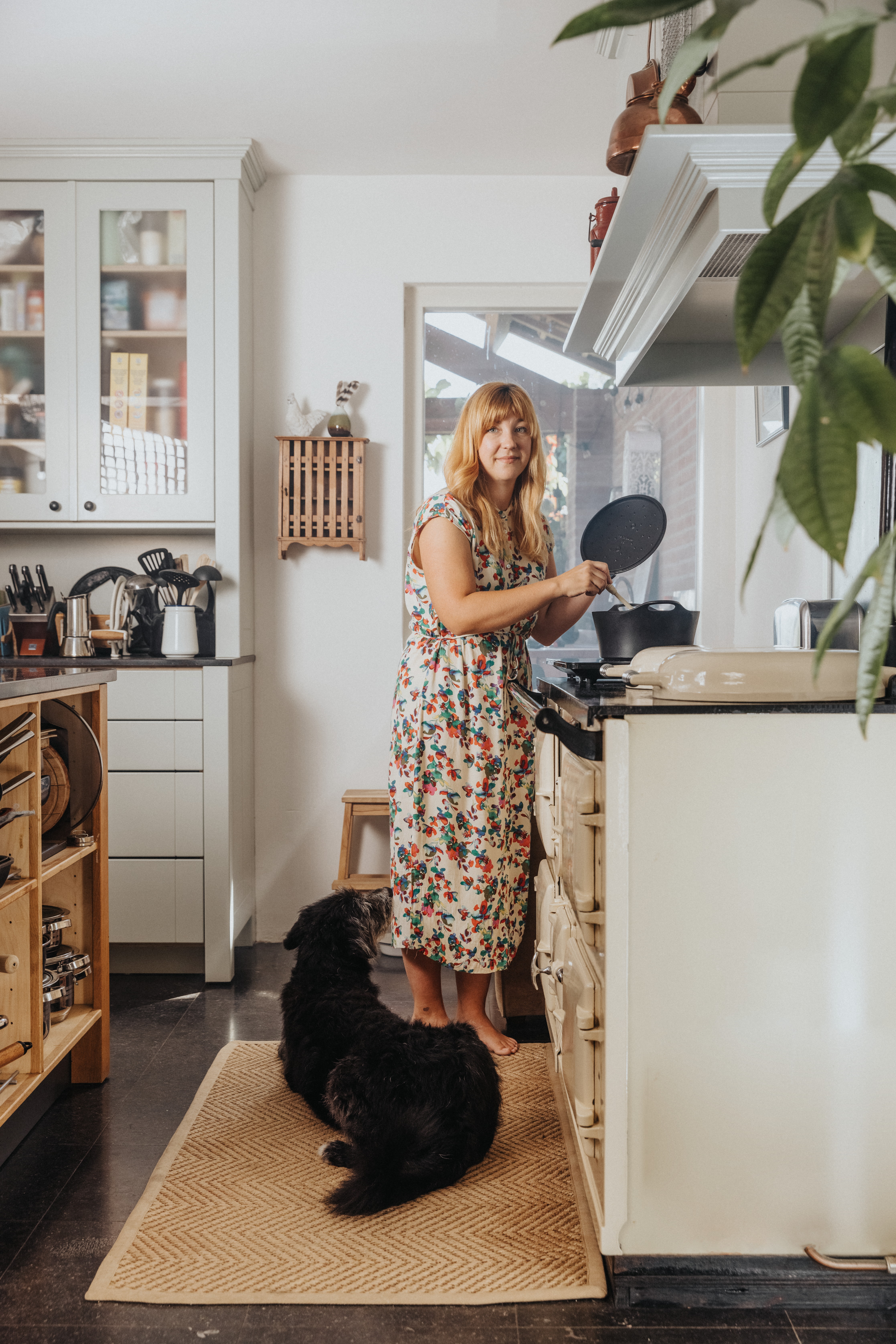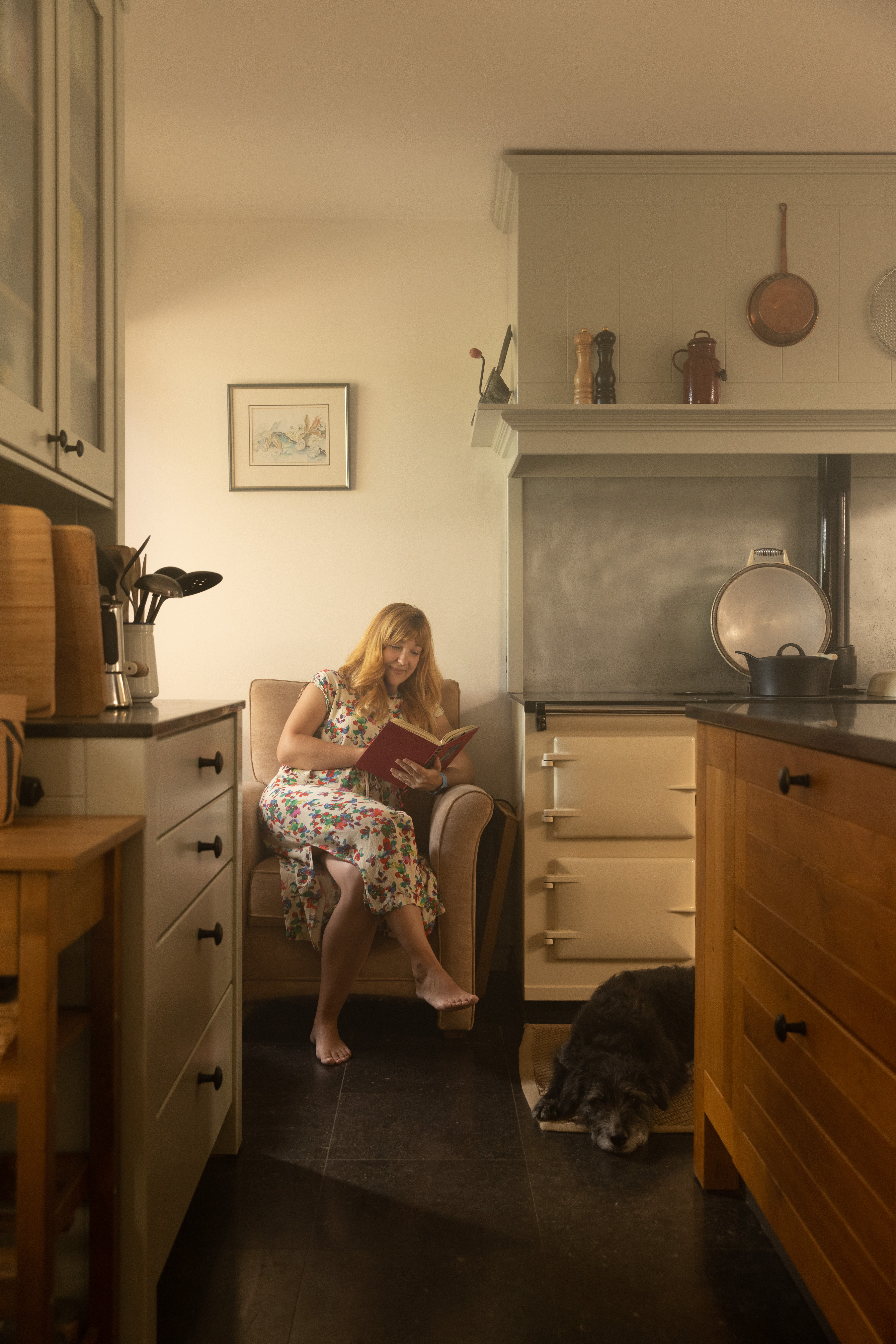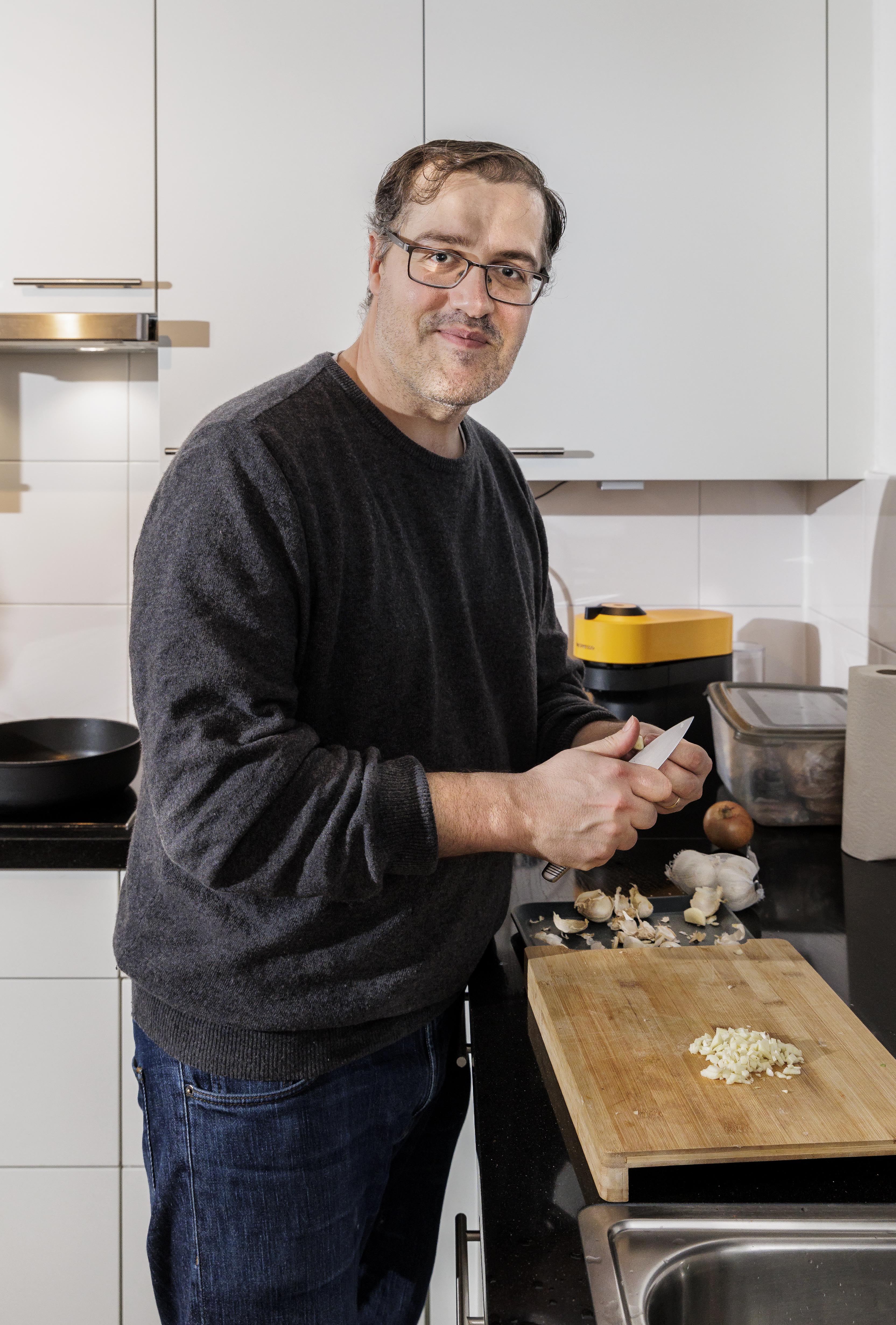An AGA cooker to warm the heart and home
When she first laid eyes on the AGA cooker during the viewing five years ago, she knew the house was meant to be hers. To Alexx Allen-de Rijk, who grew up in the United States and England, this iconic stove brand is the epitome of home comfort. Her best friend Pip’s parents had one. “When we came home from school soaking wet from the rain, we’d hang our uniforms above the cooker to dry and sit in front of it to warm up. Those memories are very precious to me.”
Alexx Allen-de Rijk was born in Chattanooga, Tennessee. Her parents divorced when she was eight years old. Her mother worked long hours as a nuclear engineer, so home cooking wasn’t on the cards until she remarried. Allen-de Rijk’s stepfather was German-Indian. His mother regularly visited from Berlin, often staying for six months at a time. She brought warmth and good food into the house. “She’s the one who taught me how to cook. She made German food—stuffed cabbage rolls, Knödel, Salzkartoffeln and Königsberger Klopse, veal meatballs in a delicious sauce with capers. But she’d also learnt to make the most wonderful curries when she lived in India with her husband. Vegetable curries are still my favourite.”
English boarding school
At the age of 12, Allen-de Rijk was sent to boarding school in England alone. “It was tough at first, but in the end it worked out all right.” Her roommate Pip became her best friend. Pip’s parents lived near the school and invited her over on weekends. “They lived in this old 15th century mill; it was beautiful. Everything was wonky and they had an AGA cooker that always had a kettle on it, boiling water for tea. I wasn’t much of a meat eater even then, so Pip’s mother made separate meals for me, delicious pastas and the like. They were so welcoming. Back home, nobody had ever made separate meals for me. Pip and I liked to cook too. Our favourite dish was shrimp bok choy noodles with ginger and fish sauce.” The AGA also heated the water for the house. “You couldn’t cook and shower at the same time; you had to coordinate.”
Distance learning and working at Aldi
After high school, she returned to the USA and moved in with her mother and stepfather. “I wanted to keep doing ballet or study psychology, because I wanted to help people. But my parents felt there was no money in that, so I ended up doing law.” Since studying in England was too expensive, she enrolled in a distance-learning degree at the University of London. “They sent me a box of books and that was it. I had to do everything on my own.” Things weren’t going well at home, so she moved in with a friend who was looking for a housemate. To earn money alongside her studies, she worked at a gym and at Aldi. “In the US, Aldi is a great employer that pays above minimum wage and offers health coverage and pension premiums even for part-time employees. With the money I earned there, I was able to study International Law in Maastricht.” She chose the programme because it is taught in English and offers Human Rights not just as a single course, but as a full specialisation.

Alexx Allen-de Rijk earned her Bachelor of Law from the University of London and her Master of Globalisation and Law from Maastricht University. She currently works as a policy and quality-assurance adviser at the School of Business and Economics.
Potatoes with beans
It was in the University Library in Randwyck that she met her now husband, Thijs. He was studying psychology. “So cute—he’d cook for me in his room. Potatoes and beans, or stuffed bell peppers in one of those mini ovens. He’s been a vegetarian from childhood.” She herself switched to a flexitarian diet to reduce her carbon footprint. She still cooks meat on holidays like Thanksgiving or Christmas. “But I buy it from an organic butcher. Everyone thinks Thanksgiving is all about the turkey, but it’s really about the side dishes—roasted vegetables, pumpkin pie, green-bean casserole. My favourite side dish is sweet-potato casserole with marshmallows, brown sugar and pecans.”
The AGA does call for a different way of cooking. “It has two hotplates that are large enough to hold several pots and pans,” she explains enthusiastically. “The inner one is the hottest. But you use the ovens most. It has four of them: 70, 100, 180 and 240 degrees Celsius. Once the potatoes have boiled, you let them cook in the oven. At Christmas I like to make beef bourguignon; the AGA is perfect for that. Hours upon hours of slow cooking. I love family dinners. I missed out on them at home as a child, so they’re very important to me now.”
An eco-friendly AGA?
In the summer months, they put an induction hob on the cooker or cook outside. “The AGA is best for cold weather, because you also use it as a heater and dryer. Unfortunately, ours is not very eco-friendly—it’s from around 1945 and runs on gas. I try to make up for it by growing my own vegetables, keeping chickens and using reusable nappies for my son. We’re considering getting it converted to electric, but that costs €4000 and we’d need 13 solar panels for the cooker alone. We’re saving up to convert it or replace it with a more eco-friendly model. If it all turns out to be too expensive, I’m afraid I’ll have to part with the AGA.”
Text: Annelotte Huiskes
Photography: Philip Driessen

Also read
-
David Baião Barata was born and raised in Castelo Branco, in eastern Portugal. His mother cooked typical Portuguese cuisine: hearty soups, lots of meat, everything doused in olive oil. It was only during his studies in cell and molecular biology in Lisbon that he began cooking for himself. And it...
-
In recent years, there has been quite some debate surrounding the value of rakings. So the question is: do university rankings really matter that much? Fair question. In this article, SBE’s Dean Mariëlle Heijltjes and SBE’s Associate Dean Gaby Odekerken weigh in on the subject.
-

Frederik Claasen, the head of policy at our partner organisation Solidaridad Network on the opportunities and obstacles facing smallholder farmers in their data ecosystems.
- in Featured
- in Human interest

